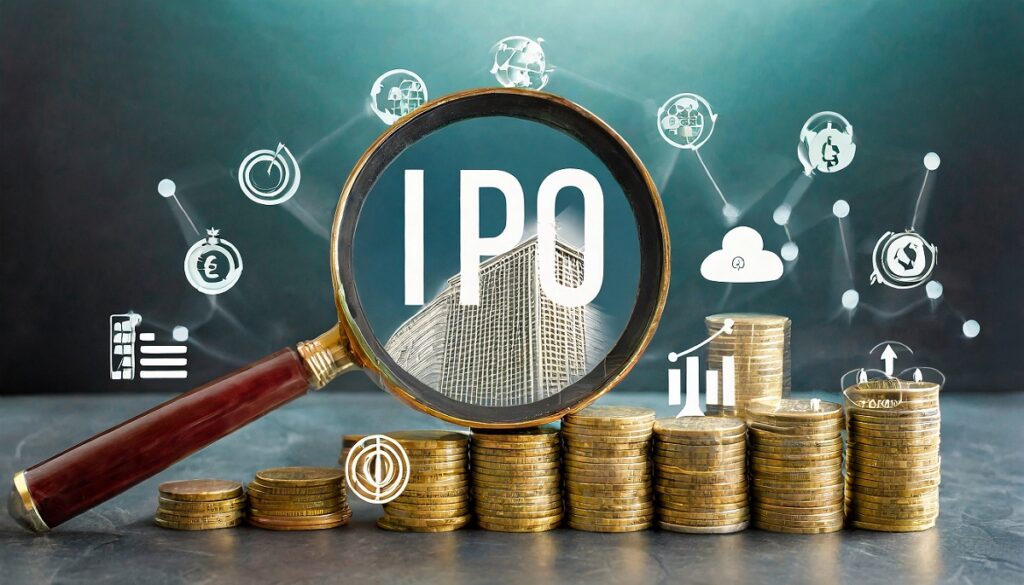In the intricate tapestry of the financial world, few events garner as much attention, speculation, and intrigue as an Initial Public Offering, commonly referred to as an IPO. But, what is IPO in share market? Beyond the headlines and dramatic stock price graphs, an IPO plays a fundamental role in a company’s life cycle and provides a pivotal opportunity for growth and expansion.
Table of Contents
What is IPO in Share Market?
An IPO, or Initial Public Offering, is the first instance when a privately-held company offers its shares to the public. Think of it as the grand debut of a company in the stock market, marking its transition from private to public ownership.
Historical Evolution of IPOs
- From Barter to Stock Exchange: IPOs can trace their roots back to ancient times when merchants sought additional funds by giving a piece of their business in exchange for capital.
- The Dutch East India Company: Credited for hosting the world’s first official IPO in the 17th century, paving the way for modern stock markets.
Reasons Companies Go Public
- Raising Capital: Topping the list, companies can amass significant funds to fuel growth, reduce debt, or fund acquisitions.
- Enhancing Visibility and Credibility: Being listed elevates a company’s profile, potentially attracting better talent and more business opportunities.
- Share Liquidity: Public trading increases the liquidity of shares, benefiting both the company and its investors.
IPO Process Demystified
- Underwriting: Financial institutions commit to buying the company’s shares and then sell them to the public.
- Regulatory Scrutiny: To ensure transparency and protect investors, companies must adhere to stringent regulations before listing.
- Roadshows: A pre-IPO tour to woo potential investors.
How Investors Benefit from IPOs
- Early Bird Advantage: Getting in early often allows investors to purchase shares at a lower price than in the subsequent open market.
- Diversification: New sectors and industries become accessible with new IPOs, enabling a diverse portfolio.
- Potential for High Returns: Though risky, some IPOs have historically provided exponential returns to early investors.
Challenges and Risks in IPOs
- Overvaluation: The hype around a high-profile IPO can lead to inflated prices.
- Lack of Historical Data: With no public trading history, predicting a company’s performance can be tricky.
- Market Volatility: External factors can drastically affect the stock’s performance post-IPO.
How to Invest in an IPO?

Investing in an IPO is tempting but requires due diligence.
Choosing the Right IPO
Research is key. Potential investors need to understand the company, its business model, and the potential for growth.
The Application Process
It’s not as simple as just buying shares. Investors must apply and then wait for an allocation, which might not always be guaranteed.
Waiting for the Allocation
Once applied, there’s a waiting game. If the IPO is oversubscribed, investors might receive fewer shares than they hoped for.
Frequently Asked Questions (FAQs)
What is the primary difference between an IPO and a Direct Listing?
In an IPO, new shares are created, underwritten, and sold to the public, raising new capital. In a Direct Listing, no new shares are created; instead, existing shares are sold by insiders without underwriting.
Why do companies prefer to stay private?
Staying private means less regulatory scrutiny, more control over the company’s direction, and the ability to focus on long-term goals without the pressure of quarterly earnings.
Can individual investors participate in an IPO?
Yes, though often through a process called an IPO subscription, where they express interest and commit funds before the shares are publicly available.
How is the IPO price determined?
The price is set based on a combination of factors including company financials, the economic environment, and demand from institutional investors.
Is investing in an IPO always profitable?
No, while many IPOs have provided substantial returns, they also come with risks, and some investors have incurred losses.
What role do underwriters play in an IPO?
Underwriters, typically investment banks, help companies determine the type and amount of shares to issue, set the offer price, and take on the risk of distributing the shares.
Conclusion
IPOs, with their allure of new opportunities, remain an integral part of the share market, bridging the gap between private enterprises and public investors. Understanding the intricate details of what is IPO in share market can not only demystify headlines but also open doors to informed investment decisions. As always, potential investors should consult with financial advisors, ensuring they make choices aligning with their financial goals.



